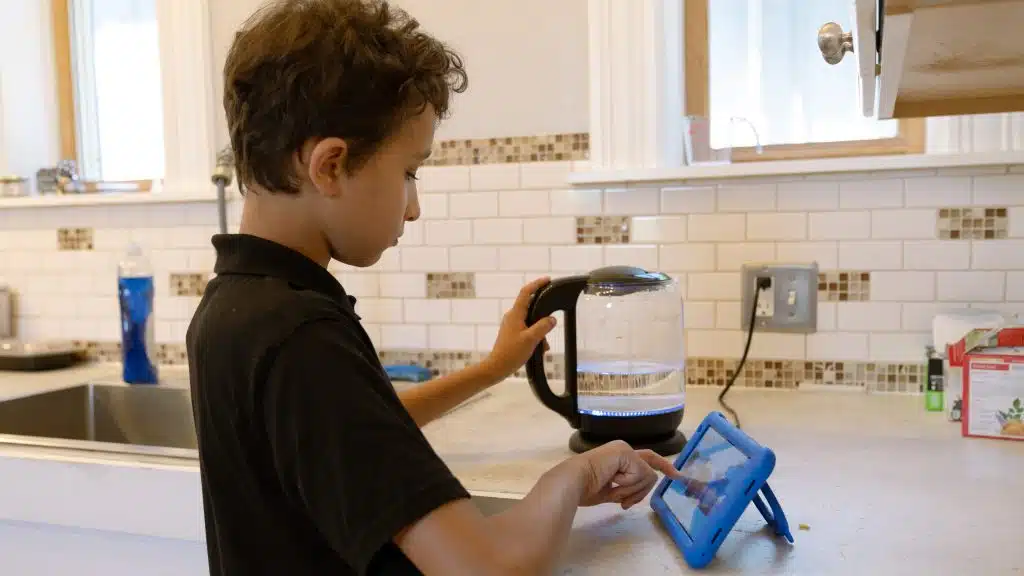In a groundbreaking discovery, experts have identified seven key signs that could indicate Attention Deficit Hyperactivity Disorder (ADHD) in children. With approximately 6.1 million children diagnosed with ADHD in the United States alone, this eye-opening information is crucial for parents seeking to understand their child’s unique behavior better. By recognizing these signs of ADHD in kids early on, families can take the first step towards providing the necessary support and guidance to help their children thrive.
Table of Contents
1. Constant Motion and Fidgeting
Does your child seem to have a motor that never turns off? Kids with ADHD often feel the need to keep moving. They might squirm, fidget, or bounce around, even when seated. I’ve seen this in many of the kids I work with. It’s like they’re driven by an internal engine that revs up and doesn’t know how to slow down.
But remember, some movement is normal, especially in young kids. However, if it’s constant and interferes with their daily activities or social interactions, it might be a sign of ADHD.
2. Trouble Focusing
Another common sign of ADHD in kids is difficulty maintaining focus. This doesn’t just apply to schoolwork. Yes, they may need help paying attention during lessons or while doing homework, but this lack of focus can extend to play and conversations. For example, they might not listen when spoken to and may struggle to follow through on instructions.
Again, remember that all kids can sometimes be inattentive. However, kids with ADHD are frequently off-task and not just occasionally.

Read more: 5 Signs of Autism in Toddlers
3. Impulsivity
Impulsivity can take many forms in kids with ADHD. They might have difficulty waiting their turn during games or group settings. They might interrupt others, blurt out answers, and struggle with self-control. In my practice, I’ve noticed that these kids often act without considering the consequences first.
While it’s normal for kids to occasionally be impulsive, those with ADHD exhibit these behaviors more frequently and intensely.
4. Difficulty Staying Organized
Staying organized can be a real challenge for kids with ADHD. They often have messy rooms, desks, and backpacks. They may struggle to start and finish projects. They often forget to bring necessary materials to school or activities, leading to many last-minute scrambling and frustration.
Again, many kids have trouble with organization. But for kids with ADHD, these difficulties are consistent and interfere with their success in school and other activities.

5. Easily Distracted
Kids with ADHD often have trouble staying on task. They get distracted easily, often shifting activity from one thing to another. Even a minor noise or interruption can shift their attention. This isn’t just about not paying attention. It’s about over-focusing on everything around them except for the task.
6. Difficulty Following Instructions
Following instructions requires attention and focus. Kids with ADHD can struggle with both. They might not understand the instructions, forget them, or get distracted in the process of following them. This can be frustrating for both the child and the parent.
7. Emotional Difficulties
Kids with ADHD often have emotional reactions that are more intense than their peers. They can be quick to anger, easily frustrated, and highly sensitive. These emotional difficulties can make it hard for them to maintain friendships, perform well in school, and cope with everyday stress.

Try Goally For Your Child With ADHD
Goally is an excellent option for many families that have a child with ADHD. Use game play as a points-based motivator for your kiddo with ADHD, help them learn emotional regulation skills, and watch them grow! It’s simple to set up and has an expert-informed design.
In the end, what matters most is understanding your child’s unique needs and behaviors. If your child is showing signs of ADHD like constant fidgeting, trouble focusing, impulsivity, disorganization, being easily distracted, difficulty following instructions, or emotional upheaval, it’s crucial to seek professional help. This doesn’t mean labeling your child, but rather equipping yourself with the knowledge and tools to best support them. After all, every child deserves the chance to thrive, and as their parent, you’re in the best position to help them do just that.
FAQs about Signs of ADHD in Kids
What are the primary signs of ADHD in kids? Children with ADHD often display symptoms such as inattentiveness, hyperactivity, and impulsivity.
How early can signs of ADHD appear in children? Signs of ADHD can manifest as early as ages 3-6, though a formal diagnosis is typically made during the elementary school years.
Are the signs of ADHD consistent across all children? No, ADHD symptoms can vary from child to child; while one might be predominantly hyperactive, another might primarily show signs of inattention.
How do signs of ADHD in kids differ from typical childhood behavior? While occasional inattentiveness or hyperactivity is normal, consistent patterns of these behaviors, especially if they disrupt daily activities, may indicate ADHD.
Can other conditions mimic the signs of ADHD in kids? Yes, conditions like anxiety, depression, learning disabilities, or sleep disorders can sometimes display symptoms similar to ADHD, so a comprehensive evaluation is essential.
This post was originally published on August 10, 2023. It was updated on June 20, 2024.
Emily is a seasoned blog writer for Goally, leveraging her extensive background in child psychology and special education to provide valuable insights and resources for parents. Her commitment to understanding and addressing the unique needs of these children, combined with her expertise in educational strategies, makes her a credible and empathetic voice for families.





